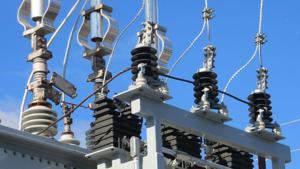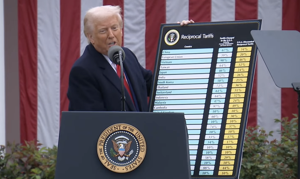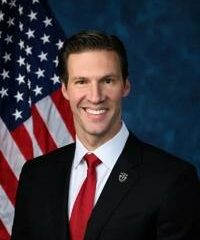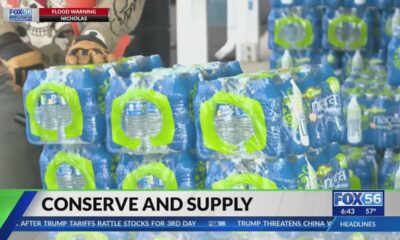(The Center Square) – A coalition of Republican attorneys general has launched an investigation into MSCI, a New York-based investment company managing roughly more than $5 billion in assets, after allegations surfaced of its boycott, divestment and sanctions (BDS) policies against Israel.
The coalition, led by Florida Attorney General Ashley Moody, gave MSCI chairman and CEO Henry Fernandez until April 18 to respond.
They contacted Fernandez after the Jewish News Syndicate reported that MSCI’s ESG policies appear to downgrade dozens of companies “that it said committed ‘human rights violations’ simply for conducting business in Judea and Samaria and eastern Jerusalem.”
JNS reported that it found “that MSCI has tagged nine companies that generated ESG controversy ratings at Morningstar for doing business in Judea and Samaria with its own such ratings” and contacted Florida officials.
In a letter to Fernandez, the AGs express “great concern” over the report saying, “the states we represent unequivocally support Israel’s right to exist and oppose the BDS movement.”
The coalition represents the states of Alabama, Alaska, Arkansas, Florida, Georgia, Indiana, Iowa, Kentucky, Louisiana, Mississippi, Montana, Nebraska, Oklahoma, South Carolina, Texas, Utah, Virginia and West Virginia.
“While the BDS movement ‘markets itself as a nonviolent movement’ designed to pressure Israel to ‘withdraw to its pre-1967 borders,’ its leadership in reality ‘seeks nothing less than the elimination of Israel as a Jewish state,’” they said. “According to a cofounder of the BDS movement, it is ‘but the first stage on the road to fulfilling the vision of the dismantling of Israel.’ The movement often focuses on pressuring large investment portfolios – such as those run by municipality or university – to divest from companies that ‘aid Israel’s occupation.’”
They also said the BDS movement has two goals: “to economically cripple Israel and create a false narrative of Israel’s occupation and colonization.”
MSCI has not released a statement in response to the inquiry. In a report released last month, it states that according to data analyzed in two indexes, companies with higher MSCI ESG ratings outperformed their lower-rated counterparts over the last 11 and 17 years, according to when the indexes were launched. MSCI also has several Israel indexes created to “measure the performance of the large and mid and small cap segments of the Israeli equity market.”
The AGs’ inquiry into MSCI followed a similar inquiry in 2022 into Chicago-based Morningstar and its subsidiary, Sustainalytics. The AGs of Kentucky and West Virginia led a coalition raising concerns about Sustainalytics, an ESG ratings and research firm that manages roughly $264 billion in assets, allegedly providing financial ratings and creating a “watchlist” of financial companies located in “occupied territories” in Israel. Last October, Florida placed Morningstar-Sustainalytics on its list of “Scrutinized Companies that Boycott Israel.”
Morningstar then conducted an internal investigation and subsequently committed to implementing seven recommendations made by the end of 2024 after working with a coalition of Jewish organizations, Jewish Federations of North America says. The recommendations involve Morningstar changing its business practices and eliminating anti-Israel bias in company ratings. A review of Morningstar-Sustainalytics’ policies found that it rated a disproportionate percentage of Israeli companies or companies operating in Israel based on “faulty assumptions, poor sourcing, and flawed models [which] threatened to deny these companies access to capital from ESG funds and mar their reputations.”
A result of the coalition’s work with Morningstar “has already resulted in significant change,” Jewish Federations said. “Last year, Morningstar removed unfair controversy ratings from over 100 firms operating in or doing business with Israel, a 94% decrease.”
Pointing to its efforts against Morningstar, the AG coalition said, “we oppose the BDS movement in all forms, especially given the recent rise in antisemitism across the United States.” They also raised concerns about an “egregious” allegation that MSCI deducted ESG points from an Israeli company because it constructed security and surveillance barriers to protect Israeli from terrorists.
So far, at least 38 states have taken actions to oppose the BDS movement, according to the Jewish virtual library, a project of the American-Israeli Cooperative Enterprise.
According to a recent report, in the three months after Hamas attacked Israel on Oct. 7, 2023, antisemitic incidents increased throughout the U.S. by 360% – after the total number of antisemitic incidents were already at a historic high in 2022, The Center Square reported.














































